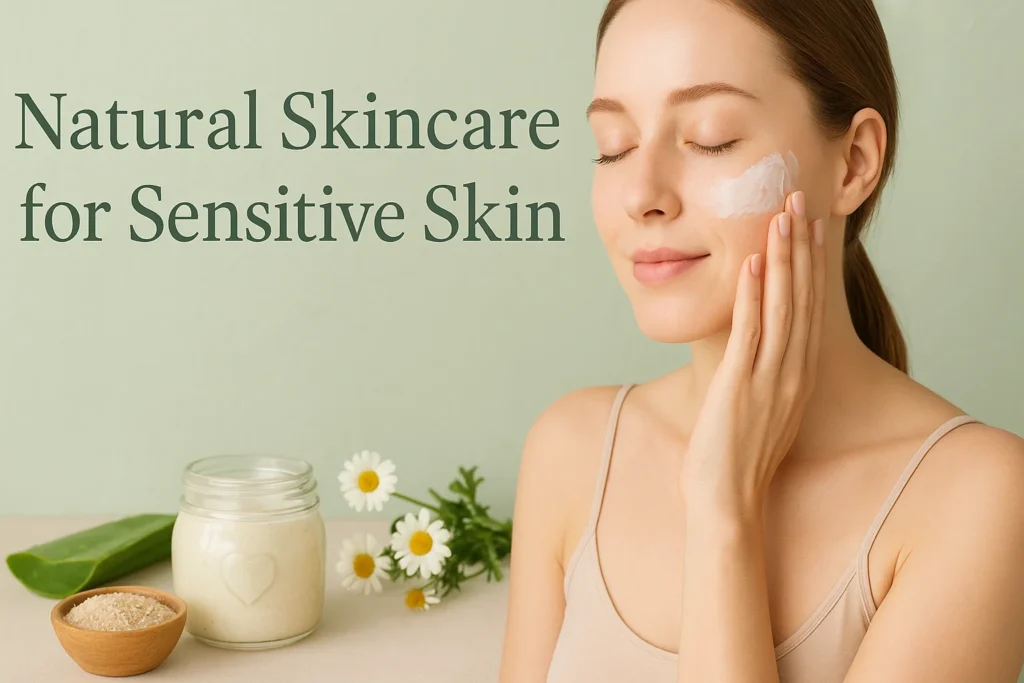Discover safe makeup ingredients for sensitive or hormone-influenced skin. Learn how to protect your skin while achieving a natural, healthy look.
Introduction
Makeup can be a powerful tool for self-expression and confidence. However, for women with sensitive skin or those experiencing hormonal fluctuations—such as during menstruation, pregnancy, menopause, or conditions like PCOS—the wrong makeup products can do more harm than good. Harsh chemicals, pore-clogging ingredients, or hormone-disrupting compounds can trigger irritation, allergic reactions, or worsen hormonal acne.
Choosing safe makeup isn’t just about looking beautiful—it’s about protecting your skin health. In this article, we’ll explore the best safe makeup ingredients, harmful ones to avoid, practical routines, and product selection tips designed for women with sensitive or hormone-influenced skin.
Common Mistakes Women Make with Makeup Selection
-
Following trends blindly: Viral makeup products may not suit sensitive or hormonal skin.
-
Ignoring labels: Many women rely on branding or packaging instead of studying ingredients.
-
Using heavy coverage foundations: Thick formulas can suffocate the skin, worsening breakouts.
-
Believing “natural” means safe: Even natural extracts (like citrus oils) can irritate sensitive skin.
-
Skipping patch tests: Failing to test products leads to unexpected irritation or allergic reactions.
Real-Life Scenarios
-
Hormonal acne flare-up: A young woman with PCOS tries a trendy foundation but develops cystic acne due to pore-clogging silicones.
-
Menopausal dryness: A woman experiencing hormonal shifts uses a mattifying powder, which worsens her skin’s dryness and irritation.
-
Pregnancy sensitivity: A pregnant woman unknowingly applies makeup with parabens and synthetic fragrance, which trigger rashes.
These examples highlight how crucial safe makeup choices are for protecting women’s health and confidence.
Actionable Solutions: Safe Makeup Ingredients
Let’s break down the ingredients you should look for when buying makeup for sensitive or hormone-affected skin.
1. Mineral-Based Pigments
-
Ingredients: Titanium dioxide, zinc oxide, iron oxides.
-
Benefits: Non-comedogenic, natural sun protection, gentle coverage.
-
Best For: Sensitive skin prone to redness or breakouts.
2. Hyaluronic Acid
-
A natural humectant that draws water into the skin.
-
Keeps skin plump and hydrated, especially during menopause or hormonal dryness.
-
Often found in liquid foundations and primers.
3. Aloe Vera & Chamomile Extract
-
Soothing botanicals that calm inflammation.
-
Reduce redness and irritation often linked to sensitive or hormonal skin flare-ups.
4. Squalane
-
Derived from olives or sugarcane.
-
Lightweight, hydrating, and non-pore clogging.
-
Ideal for acne-prone skin.
5. Jojoba Oil & Argan Oil
-
Mimic natural sebum.
-
Moisturize without clogging pores.
-
Perfect for women with combination or acne-prone skin.
6. Rice Powder & Silica
-
Natural mattifiers that absorb excess oil.
-
Keep skin shine-free without irritation from talc.
7. Vitamin E (Tocopherol)
-
Antioxidant that protects skin from free radicals.
-
Helps heal and soothe inflamed skin.
8. Niacinamide
-
Strengthens skin barrier.
-
Reduces redness and regulates oil production.
9. Peptides
-
Support skin repair and collagen production.
-
Ideal for mature women experiencing hormonal aging.
Ingredients to Avoid
-
Parabens: Potential endocrine disruptors linked to hormone imbalance.
-
Synthetic Fragrance: Triggers irritation and allergic reactions.
-
Denatured Alcohol: Causes dryness and stinging.
-
Formaldehyde-Releasing Preservatives (like DMDM hydantoin): Linked to skin allergies.
-
Talc: May clog pores and irritate sensitive skin.
-
Phthalates: Disrupt hormone function and may worsen hormonal imbalances.
Benefits of Safe Makeup for Women’s Health
-
Reduces risk of irritation, rashes, and breakouts.
-
Supports healing during hormonal fluctuations.
-
Enhances confidence without damaging skin.
-
Provides long-term skin health benefits, including hydration, barrier support, and anti-aging effects.
Practical Makeup Routine for Sensitive or Hormonal Skin
-
Start with a Hydrating Primer
Look for aloe vera or hyaluronic acid-based primers to create a protective layer. -
Use Mineral Foundation
Opt for lightweight mineral powders or liquid mineral foundations. -
Choose Cream Blushes with Squalane
They blend easily without irritating the skin. -
Select Fragrance-Free Eye Makeup
Sensitive eyes react quickly to harsh chemicals—stick to hypoallergenic mascaras and eyeliners. -
Finish with a Hydrating Setting Spray
Look for sprays with chamomile or rose water to lock in moisture.
FAQ Section
1. Is mineral makeup always safe for sensitive skin?
Yes, mineral makeup is generally safe, but always check for added preservatives or fillers.
2. Can makeup worsen hormonal acne?
Yes, pore-clogging ingredients like talc, parabens, and heavy oils can worsen breakouts.
3. Should I avoid all fragrances in makeup?
Yes, synthetic fragrances are a top irritant for sensitive skin. Choose fragrance-free or naturally scented alternatives.
4. What makeup is best during pregnancy?
Fragrance-free, paraben-free, and mineral-based products are safest during pregnancy.
5. Can mature women use the same safe makeup ingredients?
Yes, but focus more on hydrating ingredients like hyaluronic acid, squalane, and peptides for anti-aging benefits.
6. Do I need to stop wearing makeup completely if I have hormonal acne?
No. Instead, choose non-comedogenic, lightweight, and mineral-based makeup to reduce flare-ups.
Conclusion
Safe makeup is more than just a cosmetic choice—it’s an investment in women’s skin health. For women with sensitive or hormone-influenced skin, choosing mineral-based pigments, soothing botanicals, and hydrating ingredients can make makeup both safe and effective. By avoiding harsh chemicals and prioritizing gentle formulations, you can protect your skin, reduce flare-ups, and still enjoy the confidence that makeup brings.


Pingback: Women’s Skin Health: Complete Guide to Common Skin Condition - SheCure